Search
Search Results

Definition
Wanka Civilization
The Wanka (also Wanca or Huanca) people occupied the highlands of ancient central Peru around Lake Junin and the Manataro, Chanchamayo and Tarma rivers. The culture flourished from the Middle to Late Horizon periods (600 CE - 1532 CE). Dwelling...

Article
Sumerian Civilization: Inventing the Future
Imagine something that has never been thought of before. If one holds a book in one's hands, one can imagine an e-book, a large-print book, a picture book, all kinds of books. But how does one imagine a book in a world where even the concept...

Image Gallery
A Gallery of the Indus Valley Civilization
The Indus Valley Civilization (c. 7000-c. 600 BCE) is among the oldest in the world but, as it was only “discovered” in 1829 – after ancient Egyptian and Mesopotamian sites had already been excavated – many of the “firsts” of civilization...
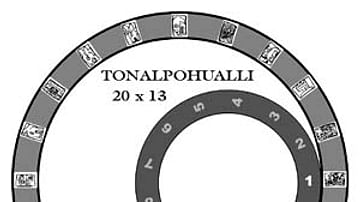
Image
Tonalpohualli Mesoamerican Calendar
A representation of the Tonalpohualli – ‘Counting of the Days’ 260-day calendar used by ancient Mesoamerican cultures. Two systems ran simultaneously with a group of 13 numbered days combined with a group of 20 name days. Thus, each day had...
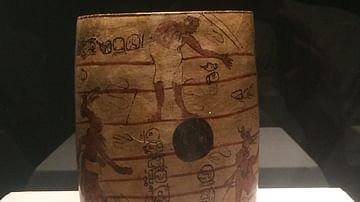
Image
Mesoamerican Ballgame Players
A ceramic vessel with painted scenes of Maya players of the Mesoamerican ballgame. Guatemala, 700-800 CE. (St. Louis Art Museum, Missouri)

Image
Mesoamerican Collecting Cochineal
An 18th-century illustration showing a Mesoamerican using the traditional method of collecting insects to make the prized cochineal dye. (The Newberry Library)

Image
Mesoamerican Canine Vessel
Ceramic Mesoamerican canine vessel from South-Central Veracruz, Mexico, c. 600 to c. 900. This open ceramic bowl from the Veracruz Late Classic period features a mould-made effigy of a canine resembling a xoloitzcuintle, a wrinkly, hairless...
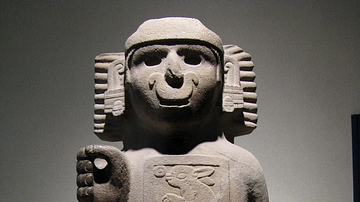
Image
Mesoamerican God 2 Rabbit
A sculpture of the Mesoamerican god known to the Aztecs as 2 Rabbit who often represented the pulque gods. These gods represented the alcoholic drink pulque and were also known as the Centzon Totochtin (400 Rabbits). 1100-1300 CE. (Poza Larga...
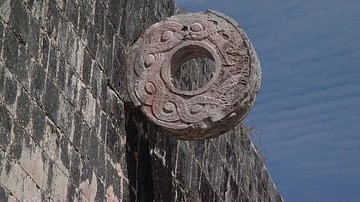
Article
The Ball Game of Mesoamerica
The sport known simply as the Ball Game was played by all the major Mesoamerican civilizations and the impressive stone courts became a feature of many cities. More than just a game, it could have a religious significance and featured in...
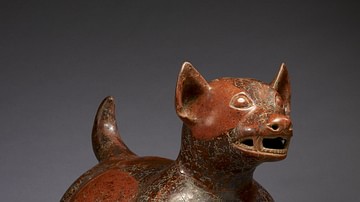
Image
Mesoamerican Dog Effigy
Red slip effigy of a dog. Made in Colima, Mexico, 100 BCE-300 CE.
Walters Art Museum, Baltimore.